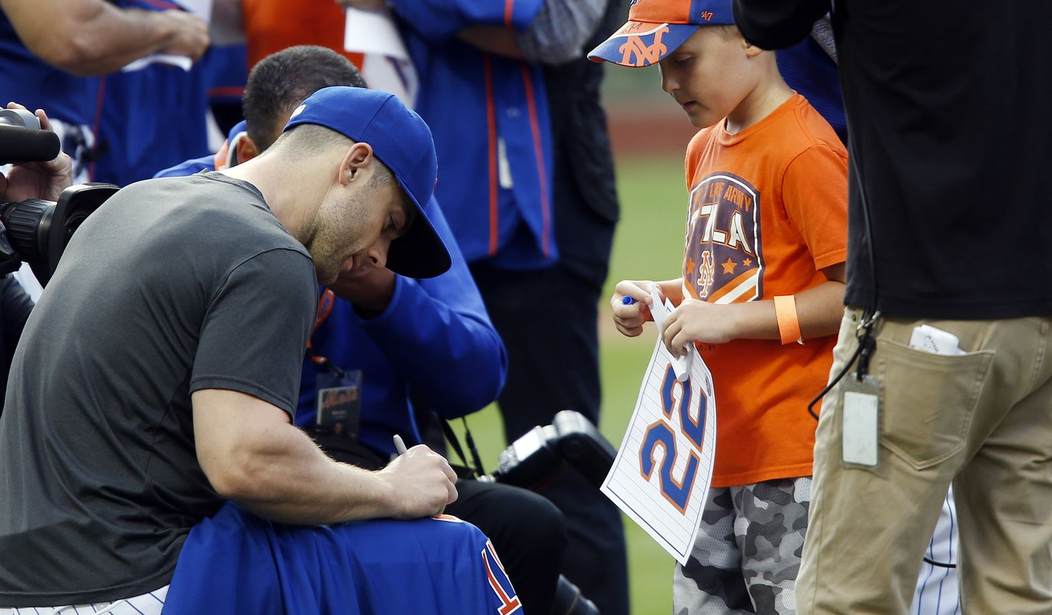Though the World Series rounded the bases to its bizarre season conclusion this week, the executives of Major League Baseball are set to make an egregious managerial mistake. And Congress seems to be standing by, overdue for a stroll to the mound and a bit of a pep talk.
Ever since America’s pastime was granted an exemption from federal antitrust laws in 1922, Congress has often stepped in to make sure the league is living up to its special role in our civic life. It’s hard to think of a more appropriate occasion for intervention, as one of the game’s most high-profile franchises, the New York Mets, is up for sale and league owners appear to be poised to approve a bid by notorious hedge fund titan Steve Cohen.
To be clear: I do not know Mr. Cohen, and what I am about to write has to do with previous reporting. I am not reporting. I am commenting on what I have read.
Mr. Cohen has a reputation that, as reporters have said, raises questions. One New York State Senator recently called him “a deeply problematic character [with] a lifelong record of disregard for ethics and morality in how he operates his businesses.” Another critic, a founder of the progressive group Business for Social Responsibility, called him “loathsome, obsessed with greed, contemptuous of the law, and ruthless beyond compare.”
Cohen’s bank account reportedly would make him the richest baseball owner by far, a tempting upside for the cash-starved Mets—and their fans. But for members of Congress who care about issues like securities law, alleged harassment, forced arbitration, or ethnic and gender diversity, Cohen’s background could soon become a bright and irresistible target.
For one, his investment firm recently pleaded guilty to what federal prosecutors called the biggest insider trading scheme in U.S. history, and paid a record-setting $1.8 billion in fines to the SEC.
That firm soon shuttered, but Cohen’s follow-up investment operation was soon in the news again for all the wrong reasons. As the New York Times recapped just last week, the firm has been the subject of numerous alleged harassment allegations. Outlets including Bloomberg reported that those cases were settled through forced arbitration provisions, and the details concealed thanks to non-disclosure agreements, as Institutional Investor explained.
Yet two bills with bipartisan backing in the current Congress, The Forced Arbitration Injustice Repeal Act (H.R. 1423 and S. 610), have tried to put a stop to this shoddy practice of muzzling sexual harassment and assault victims. It’s not hard to imagine the sponsors of those bills inviting Cohen’s supporters and the league in for hearings to ask whether they think the contents of his NDAs are relevant to his status as a would-be owner.
Several are members of the New York congressional delegation, including from the Mets’ own district. It would be headline news for sure if they wrote to MLB Commissioner Rob Manfred asking why he’s about to rubber-stamp the ownership for one of the most visible practitioners of what they regard as “a rigged system that enables corporate abuse.”
Also keen to flex their oversight would be members of the House Committee on Financial Services and the Senate Banking Committee. They might inquire of MLB owners how they justify including someone whose firm was subjected to one of the biggest securities prosecutions of all time into their elite and government-protected club. Just sayin.’
Members of the Congressional Hispanic Caucus might also be curious why MLB has been so slow to welcome Latinos and Latinas into all levels of the game, including the executive suites, as it has so often promised, to little result. Before fast-tracking Cohen’s bid, MLB rejected a similar bid made by superstar artist Jennifer Lopez and a team of highly formidable investors. But instead of selecting the first Latina to own an MLB club (that would be in its 117-year history), the league essentially told her to take a hike, apparently so they could add another man to the current list of 30 male owners. Out of 30.
At least JLo got a response. The woman at the center of the most high-profile federal lawsuit against Cohen’s firm, Lauren Bonner, told a reporter via her attorney last week that MLB never even reached out to hear her story. Bonner has been dubbed “the face of MeToo on Wall Street” because of the alleged experience she described at Mr. Cohen’s firm, yet somehow that has escaped the attention of the gentlemen that run MLB’s executive committees.
How exactly did all this happen? What kind of background check did MLB conduct? What assurances were sought from Cohen to run an honorable and wholesome organization? Does Cohen have any plans whatsoever to foster racial and gender inclusion in the Mets organization? Reporters have tried to ask but MLB insists that the entire vetting process is nobody else’s business.
Arrogant? You bet. But also flat wrong. Congress has law and precedent on its side, and plenty of legislative and regulatory options to call MLB to account as it has many times before. Tomorrow’s vote is a perilous moment for America’s pastime, to be sure.
Just last year a bipartisan letter was sent to the league demanding answers on MLB’s plans to eliminate scores of minor-league teams in communities across the country. Congress has repeatedly had to sort out baseball’s chronic labor disputes. And it was only after the late Senator John McCain threatened to strip baseball of its anti-trust exemption unless it cracked down on rampant performance-enhancing drug use that the league took action.
They ought to start now by requesting some simple honesty and integrity, values that have always been at the heart of the sport that all Americans call our own.
Careful, MLB. This could go south, and quickly.
Christian Josi is the Founder and Managing Director of C. JOSI & COMPANY, a global communications and public affairs resource organization, and Principal of SLAYMEDIA LLC, a multimedia development and production enterprise based in Virginia Beach and Washington.










Join the conversation as a VIP Member